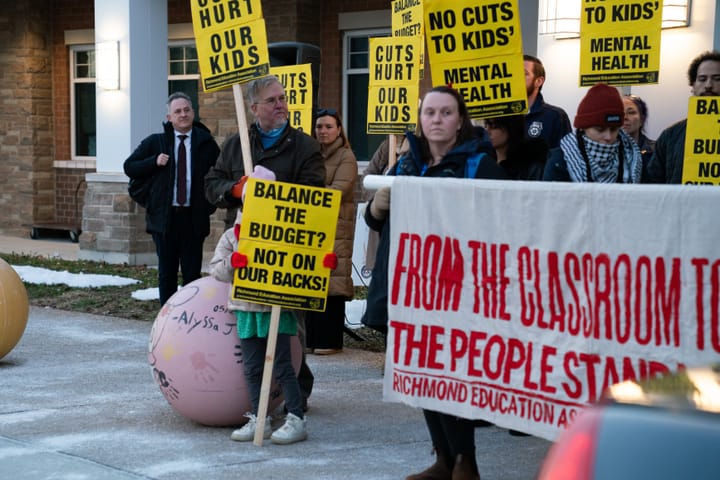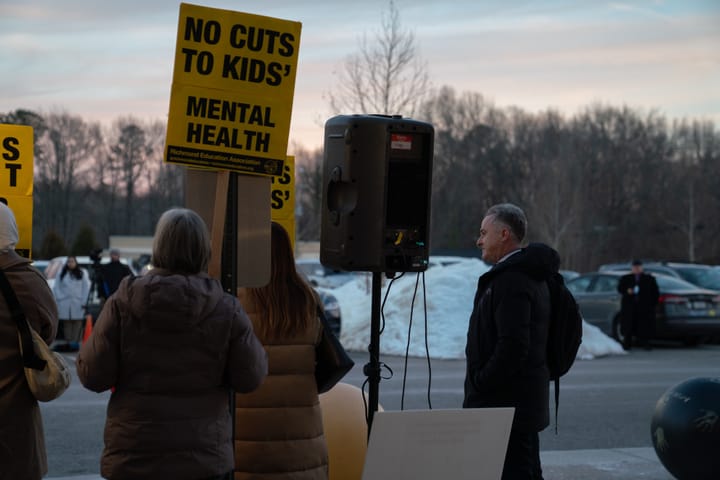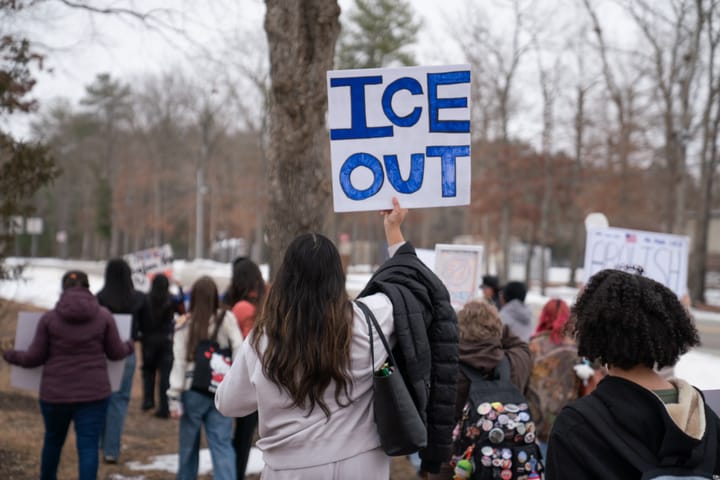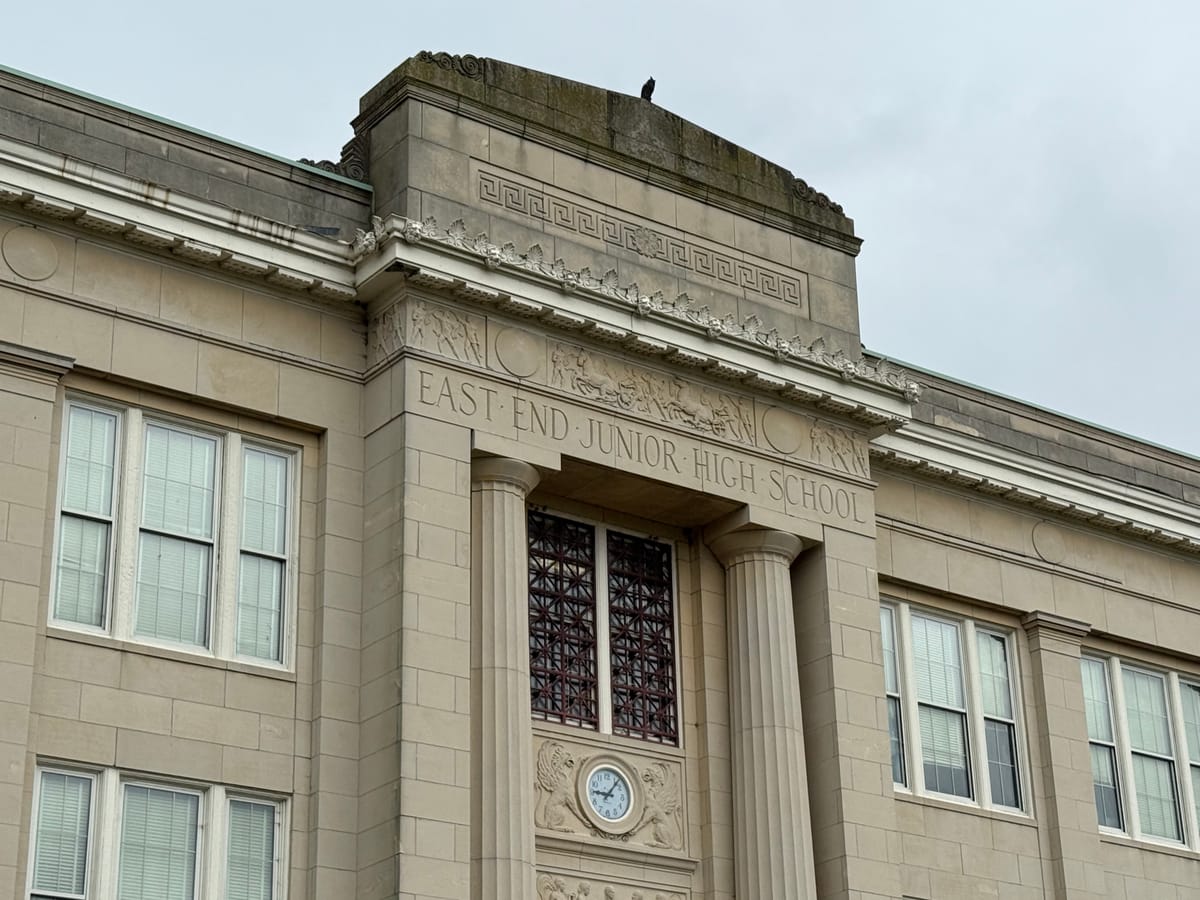
Speciality schools provide unique experiences for Richmond students
Every Thursday, students at Open High can be found crocheting, playing guitar or attending a theater class at VCU.
“We make the time,” said Open High Principal Clary Carleton, when asked about the school’s uncredited, student-selected elective programs.
Open High is one of three selective admissions schools owned and operated by Richmond Public Schools — the other two are Richmond Community High and Franklin Military Academy.
Students residing in Richmond can also apply to Maggie L. Walker Governor’s School, Appomattox Regional Governor’s School and CodeRVA, a magnet high school. The governor's schools are overseen by a separate board not affiliated with RPS.
All six serve as high schools, but Franklin Military Academy also offers a middle school. Each aims to provide a specialized education.
Open High
Open High’s organizational structure promotes student growth through leadership opportunities, Carleton said. Students are placed in cohorts of around 15 students, known as “families.” Each elected leader of these groups has the opportunity to make presentations to the administration at school-wide meetings, known as “town meetings.”
“We really do try to empower teenagers to take accountability for their own learning and part of that is helping them feel like this school is theirs.” Carleton said.
Last year, 174 students were enrolled at Open High, according to the Virginia Department of Education. All students in Richmond are eligible to apply to enter Open High at the ninth or 10th grade level.
Eastan Weber graduated from Open High in May and began at the University of Virginia this fall, though she originally planned on pursuing higher education much further from home. She said her advisor, Micah Davis, helped her through the application process and encouraged her to look at more local schools, which ended up being a great fit.
“I think the fact that we’re such a small school and such a close community helped it to where every administrator and teacher knew their students — their hearts and what they want for their future,” Weber said.
Weber transferred to Open High after one year at her local school, Thomas Jefferson. She continued to be involved in the community at Thomas Jefferson even when attending Open High, particularly through her involvement with sports, including cross country, basketball, soccer and track and field. The three RPS speciality schools are not permitted to have VHSL sports teams, so students must participate in sports at their zoned school if desired.
“I’m grateful for Open because I feel like it gave me the best of both worlds to where I could have this amazing academic experience, but then also got to keep the high school experience with TJ by being able to play sports and go to all the football games and do all the fun stuff with them,” Weber said.
One thing that would improve Open High, she said, would be more accessibility to different types of students. Some students may thrive in the alternative environment that Open High offers, but may not be given the chance because they weren't on an honors track from a young age, she said.
“No one is not good enough for our school,” Weber said.
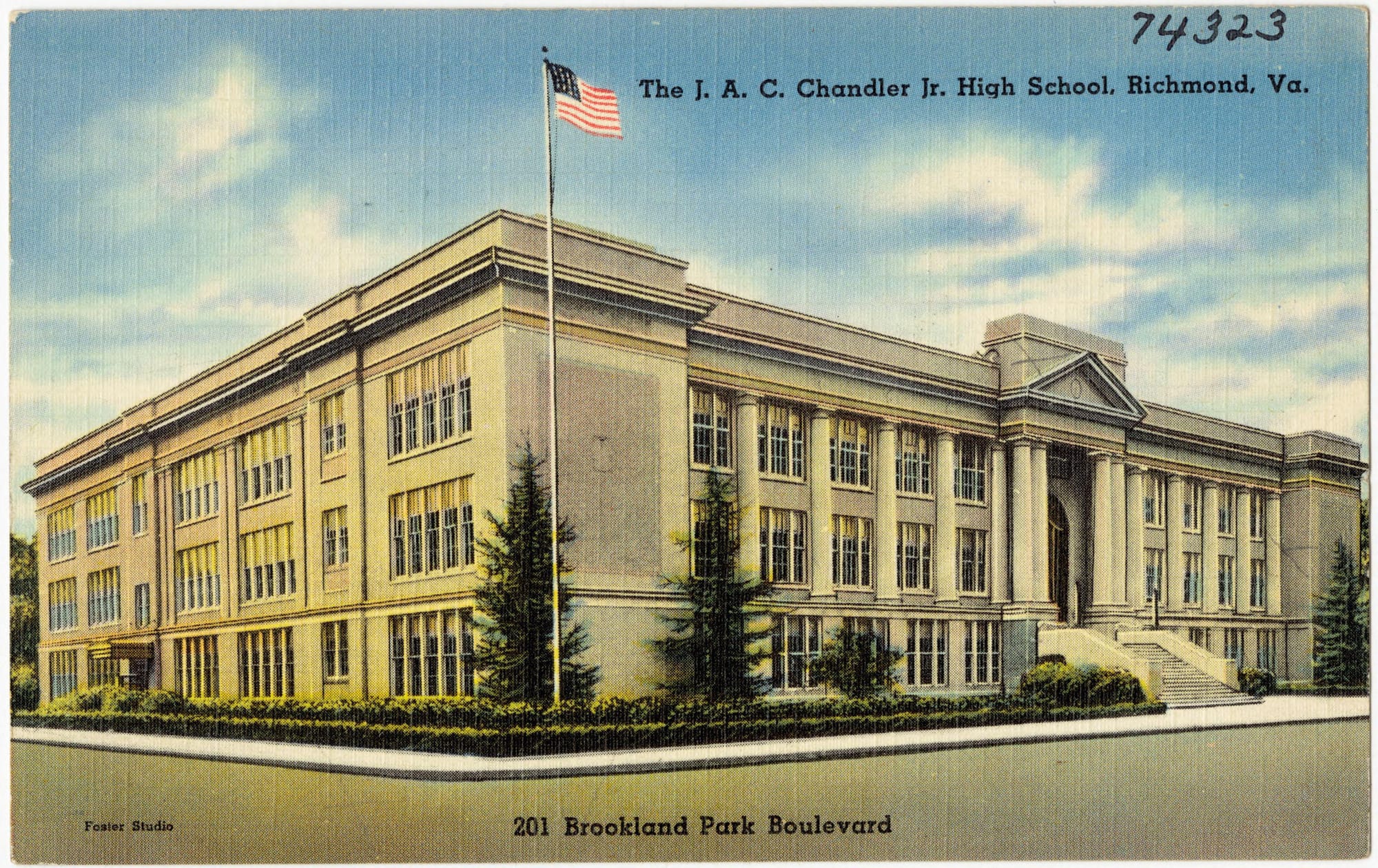
Richmond Community High
Kenya Massenburg is the principal at Richmond Community High. One thing that stands out to her is the attitude of her students.
“I have not met a student who doesn’t love Richmond Community,” Massenburg said.
Every student in Richmond is able to apply to Richmond Community High before their freshman and sophomore years of high school. About 240 students attend yearly, according to the school’s website.
Something unique to the school is the school’s weeklong “minimester” that takes place in the spring every year. Students participate in a grade-level specific excursion meant to bond and educate the students, Massenburg said.
All freshmen at Richmond Community High are required to attend their minimester, which is a camping trip to the Chesapeake Bay. Students go hiking and crabbing, learn to cook and work on assembling their tents together.
“You see the camaraderie, the fellowship, the rapport that they have created,” Massenburg said. “They return different in a sense that they truly understand what it takes to be a Pharaoh.”
The freshman minimester is in part funded by the Richmond Community High Advisory Board, Massenburg said. The board consists mainly of alumni who raise money for the trip fund. Richmond Community High offers a financial aid application for the trip to help families pay for all or part of the cost.
Recent graduate Jaylyn Miller described two of her favorite traditions at Richmond Community High: Harvest Fest and Dancing with the Stars. The day before Thanksgiving break, known as Harvest Fest, takes place every year. Students get the day off from class responsibilities to play board games, have a school-wide kickball tournament and allow alumni to return to socialize with their peers, Miller said.
Dancing with the Stars is a school tradition where families — similar to those at Open High — compete in a dance competition with a different yearly theme. Miller and her family won first place her sophomore year and second place her junior year. The tradition encouraged her family to get to know one another and make use of everyone’s talents, Miller said.
“Family my sophomore and junior year was so fun, because our senior classmates were dancing, so when we did Dancing with the Stars, we always ate it up,” Miller said.
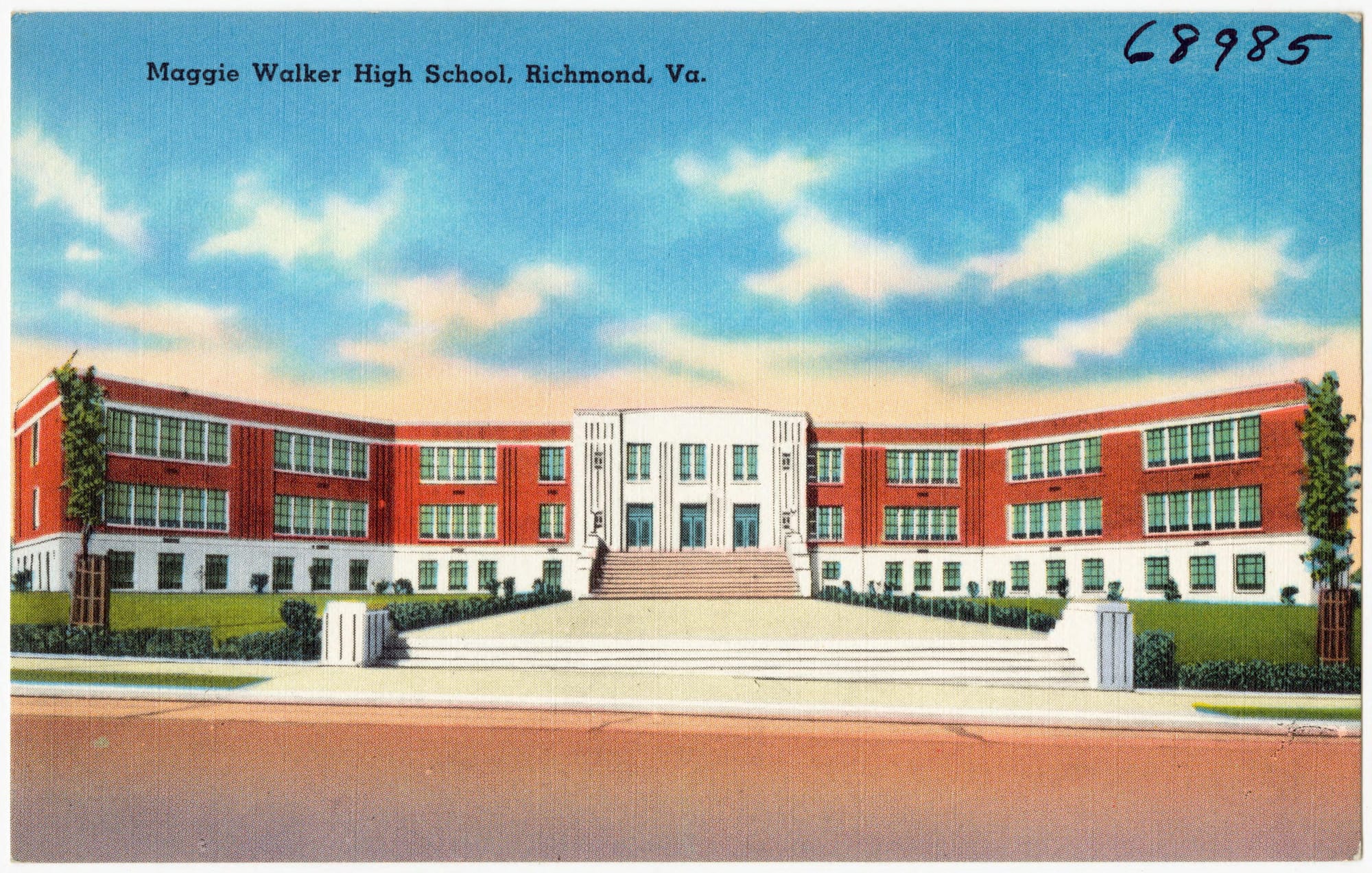
Maggie L. Walker Governor’s School
Ben Pearson-Nelson heads the Parent Teacher Student Association at Maggie L. Walker Governor’s School. One thing that separates Maggie Walker from other schools is its day-to-day operations, Pearson-Nelson said. He compared a school day there to one that a student might experience at a college or university. In short, students are granted more freedom with their time.
Students from the cities of Colonial Heights, Hopewell, Petersburg and Richmond, as well the counties of Charles City County, Chesterfield, Dinwiddie, Goochland, Hanover, Henrico, King and Queen, New Kent, Powhatan and Prince George can all apply to enter MWGS as freshmen, according to the Virginia Department of Education. The school educates grades nine through 12 and enrolled 794 students last year, according to its website.
The preparatory aspect of Maggie Walker ensures that students have the expectation of pursuing higher education after high school, Pearson-Nelson said. Many of the professors have multiple degrees and treat their students like college-level academic students.
“Going through Maggie Walker, the students who go to college report back that this is so much easier than I suspected,” Pearson-Nelson said.
Each teacher at Maggie Walker is required to sponsor a club, which provides students with a variety of options to experience a new activity or hobby. Most of these clubs take place during the school’s hour-long lunch break, so students can access these extracurricular activities during the school day, as opposed to after school when they may have jobs, homework or sports, Pearson-Nelson said.
The school offers majority upper-level classes, including honors levels, Advanced Placement options and dual-enrollment options through VCU, Pearson-Nelson said. However, not all students have to excel at everything to be successful at MWGS, he added.
“You do have gifted students that are gifted in all areas, but you also get the kids who are like I’m amazing at math and I’m going to be a NASA scientist — I don’t read that well, and vice versa,” Pearson-Nelson said. “So there is a full sort of buffet of courses offered to students to sort of meet their individual needs.”
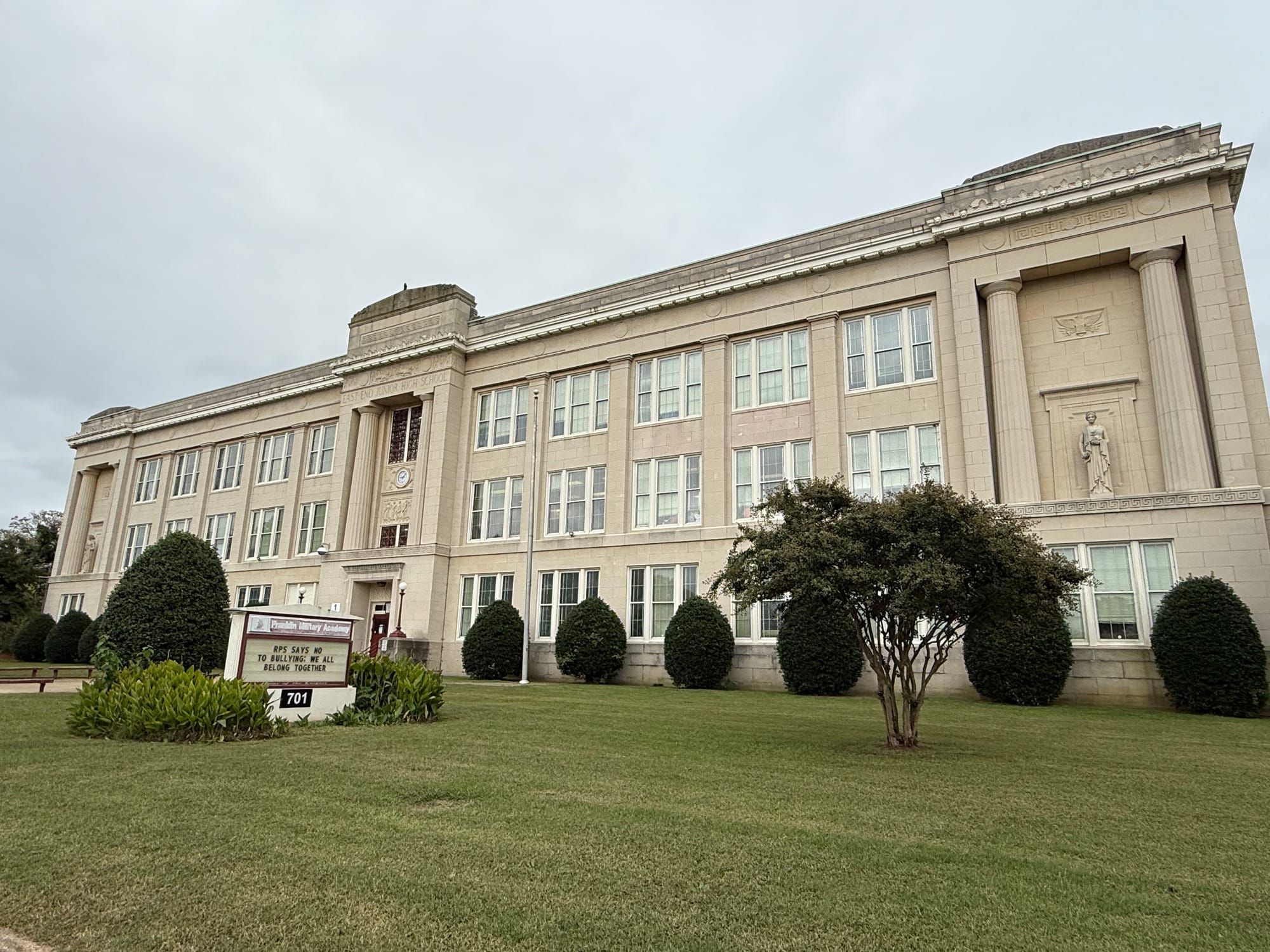
Franklin Military Academy
Franklin Military Academy, unlike other selective admissions schools in Richmond, starts at the middle school level and goes through 12th grade. Students can apply to enter at the sixth and ninth grade levels. Franklin Military Academy is the first public military school in the nation, according to its website.
The academy enrolled 344 students last year with a 100% graduation rate and an average class size of 12.5 students. Middle school students have the opportunity to participate in the full range of middle school athletics programs, while high school students can participate in sports at their zoned school.
The small size of Franklin provides many unique experiences for students, said Principal David Hudson. In particular, the students are exposed to a variety of career paths through field trips and are able to experience more individualized attention at these excursions. Students at Franklin Military Academy have visited the Federal Reserve, a Dominion Energy plant, VCU’s medical campus, Congress and more, Hudson said.
Students participate in “formation” on Mondays, Wednesdays and Fridays in the afternoon. During this time students learn about marching, sabers and complete different drills as part of their military education, Hudson said.
“It’s like having a regular school with a little addition to it,” Hudson said.
One of the most important aspects of Hudson’s leadership is his encouragement of students, he said. Hudson said he grew up in an environment where he was not uplifted, which gives him an edge in noticing when children are not being supported. He searches for teachers who can provide a positive atmosphere for students, Hudson said.
“Once somebody says something nice about you … you’re not going to want to do anything but good,” Hudson said.
CodeRVA Regional High School
Located in the Northside of Richmond, CodeRVA is a magnet school serving multiple counties in the Central Virginia area. Admission to the school is based on a lottery system, meaning there are no essays, recommendation letters, tests or interviews for the students, said Principal Kume Goranson.
The school enrolls high school students in Amelia County, Charles City County, Chesterfield County, Colonial Heights, Cumberland County, Dinwiddie County, Hanover County, Henrico County, Hopewell, New Kent County, Petersburg, Powhatan County, Prince George County, Richmond and Sussex County.
CodeRVA provides an education based in computer science, particularly in the later years. Students complete a mock internship their 11th grade year, and are paired with real clients their senior year. As a part of the 11th grade experience, students do a mock interview with a business or community partner.
In their senior year, students work on computer science skills, such as web design, marketing and data analysis, Goranson said. Recently, seniors worked with the VCU College of Engineering and Look North World, a video game company.
Corynn Mason, a 2024 graduate of CodeRVA, attends Hampton University and was an Office of STEM Engagement intern at NASA’s Ames Research Center this summer. Her internship experience as a high school student helped set her apart from other applicants, she said.
As a student at CodeRVA, Mason said her Python course was the most beneficial to her once she started college because of how it introduced specific coding techniques.
“Those are key parts to any programming language that you're going to have to learn,” Mason said.
CodeRVA enrolls a higher percentage of students with an Individual Education Plan than other schools in Virginia. While there’s no exact causation, Goranson said, there could be a lot of factors that influence the school’s high special education population.
“We tend to have a lot of students who have neurodiverse identified needs, and so sometimes those interests align with students' personal preferences,” Goranson said.
Appomattox Regional Governor’s School
Located in Petersburg, Appomattox Regional Governor’s School provides an arts and technology based alternative to traditional high school for a number of Central Virginia students. Students from Amelia County, Charles City County, Chesterfield County, Colonial Heights, Dinwiddie County, Franklin, Hopewell, Petersburg, Powhatan County, Prince George County, Richmond, Southampton County, Surry County, and Sussex County are eligible to apply to ARGS. Last year, ARGS enrolled 384 students. The school offers six focus areas for students: dance, literary arts, technology, musical arts, visual arts and theater arts.
“If you think about what the arts do, which is take risks and try and try again, it’s kind of just like the scientific method, which is what you’re doing in technology,” said ARGS Director Meagan Tenia.
ARGS extends the school day by one hour to fit in all the required curriculum for high school students while maintaining time for each focus area. Most Fridays include two hours dedicated to the students’ focus areas. Students can be seen working on a new orchestra piece, doing figure drawings or rehearsing for an upcoming show, Tenia said.
“Our students want to come to school because they’re able to do what they love at this time,” Tenia said.
Dan Coakley graduated from ARGS in 2006. His focus area was technology and he now works at an insurance technology company. Coakley was eager to apply to ARGS as an eighth grader at the recommendation of his friend, he said.
“He would always tell me how cool all his friends were, all the resources that they had access to and the teachers,” Coakley said.
As a freshman, Coakley took a graphic design class and his interest continued from there, thanks to his teacher, David Barlett, who still teaches at ARGS. In Coakley's sophomore year he took the next level, in his junior year, the next level and senior year he had the opportunity to be a graphic design intern with a theater group, Sycamore Rouge.
Although his career doesn’t involve much graphic design, Coakley said studying at ARGS permanently changed his way of thinking.
“I learned how to translate technical terms that I was really familiar with into terms that, you know, anybody would understand,” Coakley said. “And so even now, in my day-to-day insurance life, I’m still doing that.”
Coakley met a diverse group of students he said, as ARGS pulls students from 14 different counties, who all had different hobbies, activities, abilities and talents, he said. His bus rides to ARGS were long, often up to two hours, he said. During this time, students would mingle, work on last minute homework and even nap, he said. The unstructured time before school allowed students to bond beyond the school walls.
His arts education has permanently changed his life, Coakley said. He often takes classes at the Visual Arts Center of Richmond, including pottery, woodworking, basket weaving and blacksmithing, and he is a member at BuildRVA.
“I’m so thankful I made one of the best choices in my life when I was 14-years-old,” Coakley said.
This article has been updated to reflect the correct spelling of Kume Goranson's name.
The Richmonder is powered by your donations. For just $9.99 a month, you can join the 1,200+ donors who are keeping quality local journalism alive in Richmond.


